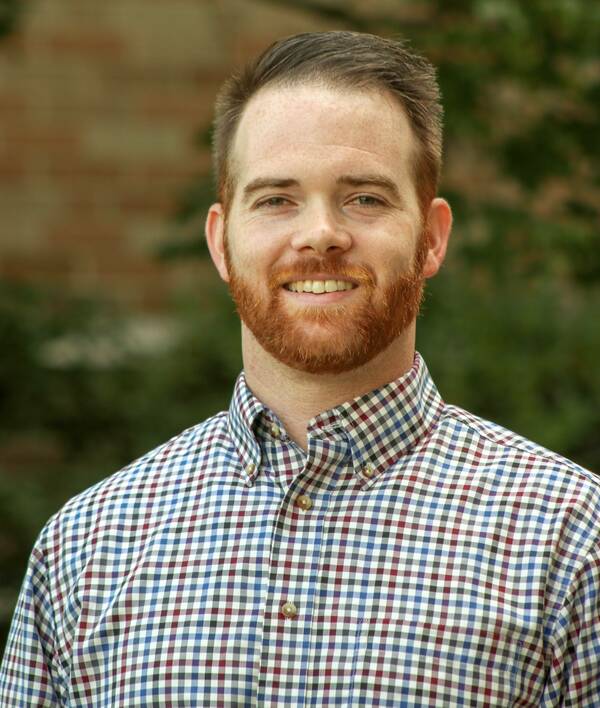
For Ryan Woodbury ’21, the combination of psychology and statistics has always piqued his interest. Intrigued by modeling and statistics—as well as the intricacies of how and why humans act the way they do—he sees many data possibilities within the study of behavior.
After earning a degree in psychology from Brigham Young University, he moved on to a master’s program in developmental psychology from the University of Notre Dame. He fueled his passion by taking quantitative psychology courses focused on behavioral phenomenon and the measurement of human behavior.
During the final year of his master’s program, Woodbury heard about the launch of Notre Dame’s new online MS in Data Science—and how the curriculum was being shaped with input from the Department of Psychology, as well as the Mendoza College of Business, the Office of Information Technologies, and the Hesburgh Libraries. It seemed like the perfect fit, but he knew he needed to finish one master’s degree before beginning a second program.
At the time, Woodbury was also starting a new job with Notre Dame’s Institute for Educational Initiatives. As a research and data analyst, he would get to put his preliminary data science skills to work on comprehensive studies that explore the impact of educational programs on K-12 students.
“As I settled in and got deeper into my work, I realized I would benefit from an actual data science degree that could help me understand why, how, and when to use data.” He dreamed of one day helping his employer create a more data-focused culture, so he revisited the idea of earning an MS in Data Science and applied to be part of the third cohort.
“It’s been a phenomenal learning experience, along with lots of community building,” Woodbury explains. “The class content has been wonderful.” He says the program is the right mix of new content and a refresh of subjects he studied in the past.
“The Ethics & Policy in Data Science and Storytelling & Communications for Data Scientists courses gave me lots to think about, even though I already had experience with those topics,” he describes. “The ideas are packaged and presented in new ways, and I learn alongside colleagues who share their own experiences within new contexts.”
He’s also discovering innovative concepts through courses like Data Visualization, which reveals helpful exploration, reporting, and monitoring techniques he’s able to integrate into his daily work.
As a result of strengthening his skills, Woodbury recently took on an expanded role at the Institute for Educational Initiatives: He now leads a group of non-data-scientists who are responsible for handling the data within their respective groups.
To streamline data collection, management, reporting, and visualization processes, Woodbury concentrates on creating and maintaining systems they can use. He has also developed a network of data dashboards to monitor program performance and support informed decision-making across the organization.
“People at work already knew me as the ‘data guy,’ but now we can really get things done since I’ll have this degree under my belt,” he says. “I help my team members think through the data science method and data science storytelling. I can actually engage in changing the entire culture of my organization because of the new processes and technical skills I now have.”